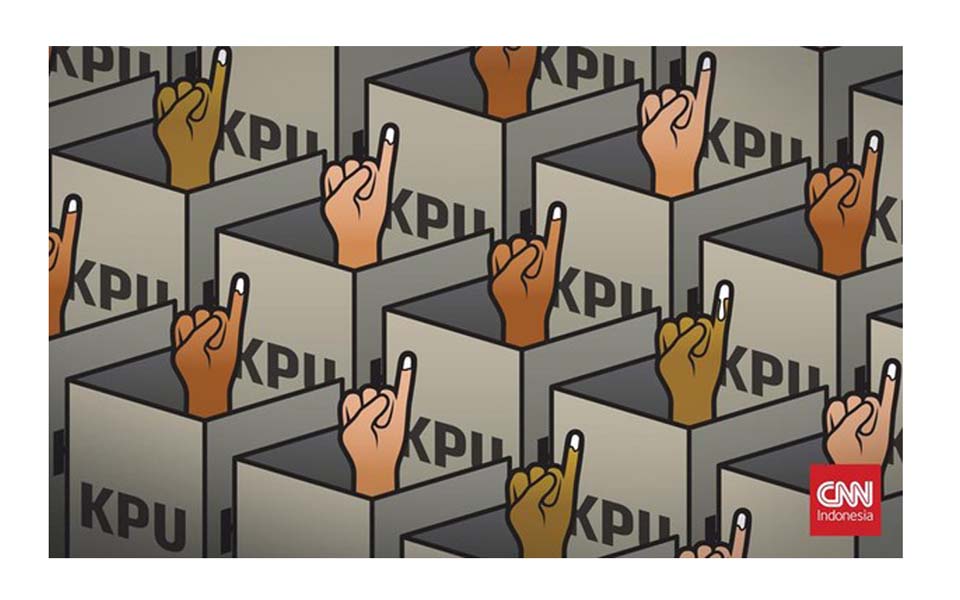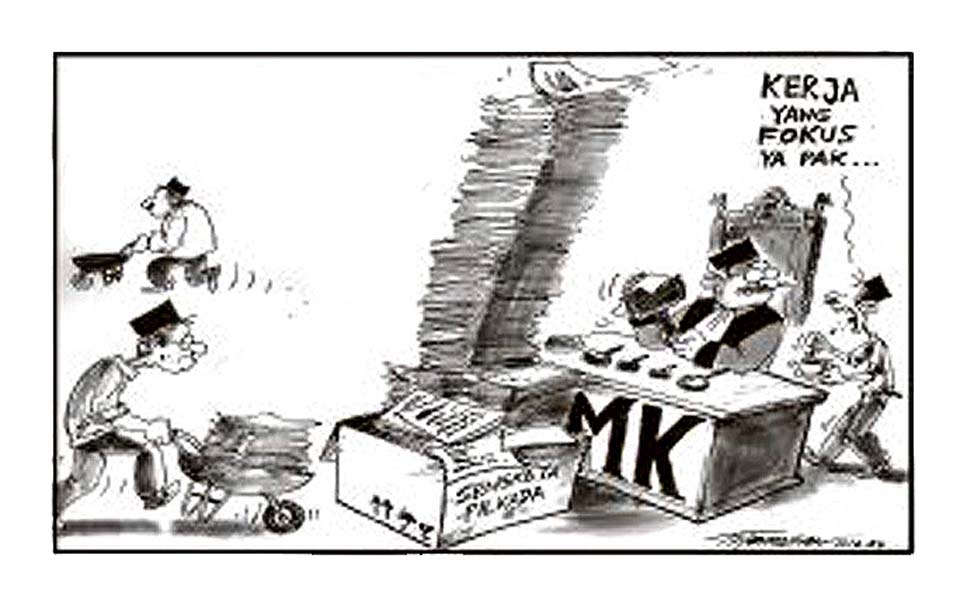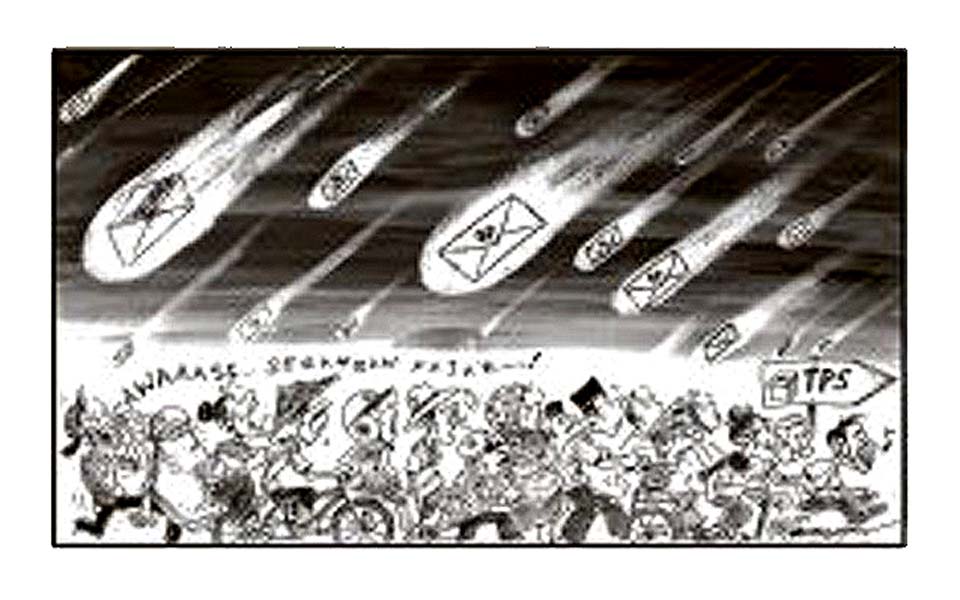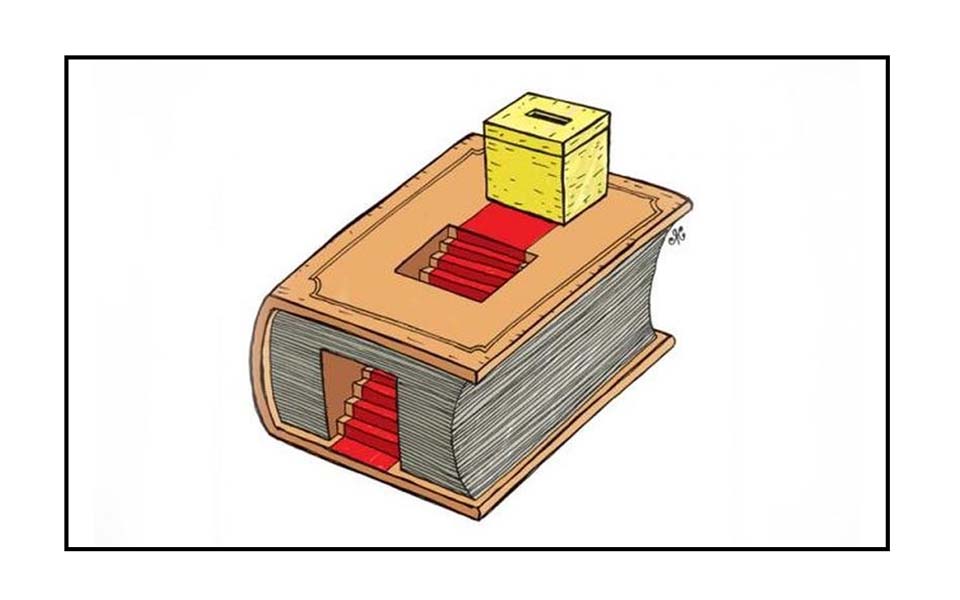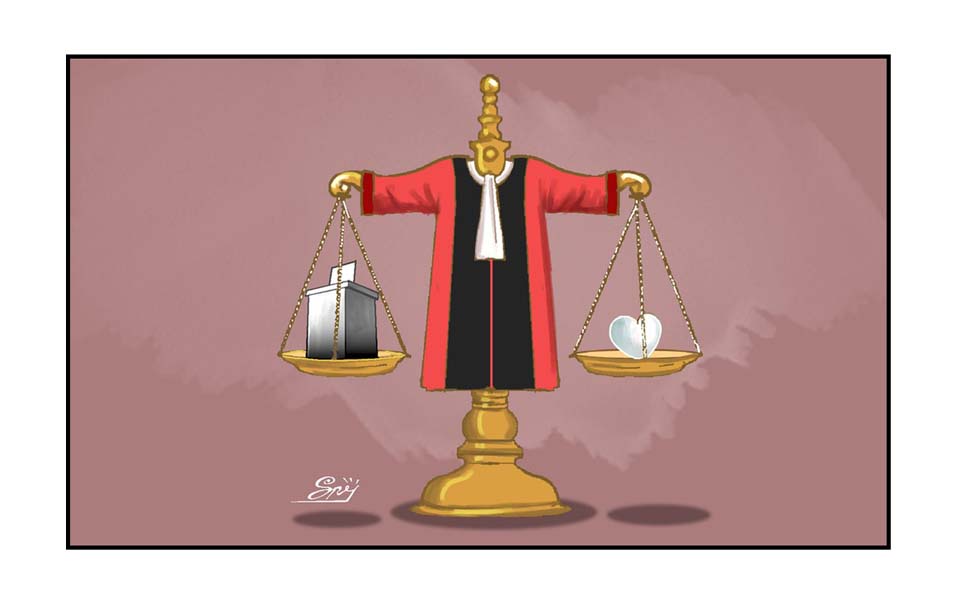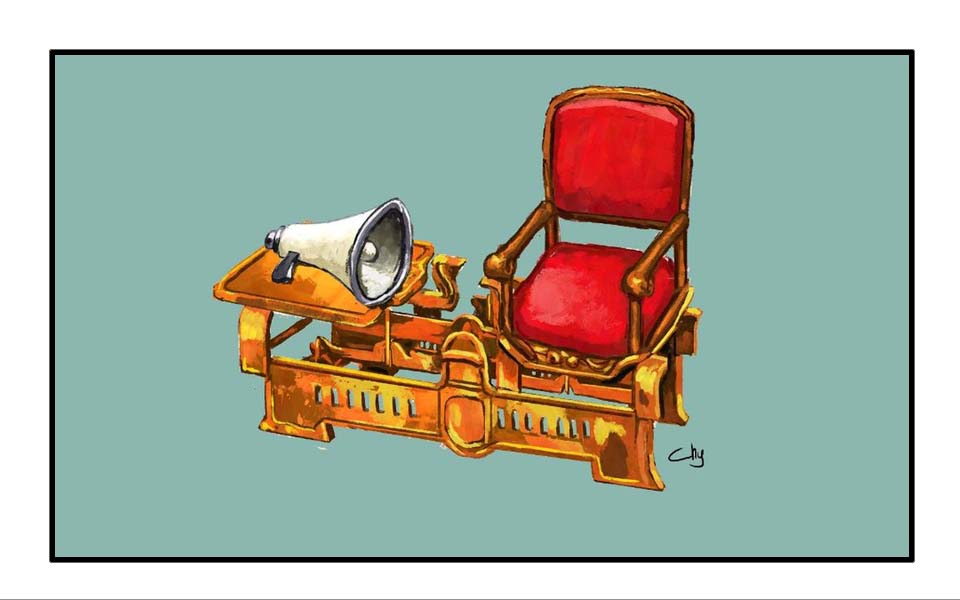
Man: I’m making a sincere and above board contribution (but my name will be noted right?)
Farmer: I’ll contribute a prayer, okay
Tie on sack reads “Campaign funds”
A shift in control over land, minerals and other resources to regional governments as part of the regional autonomy process, along with the cost of campaign spending for regional legislative bodies reaching into the millions of dollars, has turned campaign finances into a potentially lucrative investment for corporations and local business.
In order to get on the ballot, candidates must secure the backing of political parties representing at least a fifth of the seats in the local parliament. These parties charge extortionate fees – euphemistically referred to as “dowries” – for their support with estimates putting the price in resource-rich areas reaches as much as 1 billion rupiah (USD$72,000) for each seat a party holds in parliament.
This has become a major driver of deforestation, environmentally destructive mining and land rights abuses as corrupt local candidates sell-off of land and resources to raise money to cover their political campaigns by trading business licenses and facilitating agro-business in return for campaign contributions.
A 2016 book titled Electoral Dynamics, which profiled the 2014 legislative elections, noted that that in the weeks afterward, “the consensus view that developed in the media was that candidates had distributed cash payments to voters, handed out goods, and bribed ... officials at levels that had never previously been seen in Indonesia’s electoral history”.
The authors of a book to be released later this year titled Democracy for Sale write that the “exchange of favors and material benefits at every stage of the electoral cycle is so pervasive that it is apt to think of democracy in Indonesia as being for sale”.





